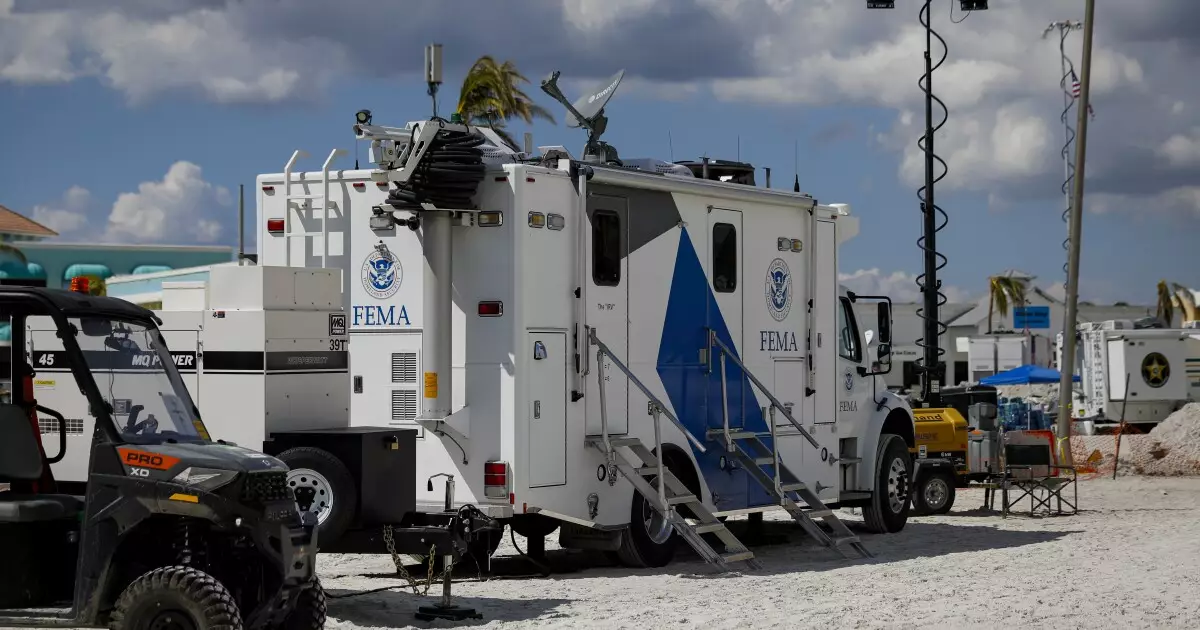The recent discussions surrounding budget cuts to the Federal Emergency Management Agency (FEMA) have ignited a wildfire of concern among financial analysts, especially those watching the municipal bond market. With natural disasters becoming increasingly common due to climate change, the potential reduction in federal support for disaster recovery services could unleash a chain reaction of financial turmoil. This article delves into the ramifications of FEMA cuts, particularly for municipalities in disaster-prone areas, and underscores the need for a robust conversation about smart governance and fiscal responsibility in disaster management.
Increasing Vulnerability of Municipal Bonds
Municipal bonds, often viewed as safe havens for investors, are now showing signs of distress, particularly in regions along the Gulf and Atlantic coasts, which have experienced a striking increase in disaster declarations between 2015 and 2024. According to Tom Kozlik from HilltopSecurities, certain bond issuers are teetering on the brink of financial disaster. The implications of cutting FEMA funding become starker when we consider the reality: states already wrestling with the devastating aftermath of hurricanes, wildfires, and flooding will likely face heightened risk. This localized pressure not only erodes investor confidence but also raises questions about the overall creditworthiness of municipalities in these regions.
The Deteriorating Role of Federal Support
Without the assurance of federal aid, we may witness a troubling escalation in financial instability among municipalities. The report from S&P Global Ratings points to crucial factors like liquidity issues, tax revenue decline due to property destruction, and the potential withdrawal of reserves following natural disasters. For municipalities with limited economic buffers, these challenges could spiral out of control, leading to substantial credit downgrades. The looming uncertainty surrounding FEMA’s future, particularly under the current administration’s budgetary maneuvers, creates a climate of fear not just for municipal issuers but also for everyday citizens who rely on their governments to provide critical recovery services following disasters.
Political Implications and the Battlefield of Ideas
Herein lies a crucial point for policymakers: the conversation about FEMA is not merely about budgets—it’s about the social contract that binds government entities to their constituents. Proposals to eliminate or reduce FEMA functions, as endorsed by figures like former President Donald Trump, underscore a division in ideologies about disaster management. While some may argue that a smaller federal presence in disaster recovery encourages local self-sufficiency, the reality shows that many municipalities lack the economic resilience to handle natural disasters alone. This ideological battle represents a fundamental misunderstanding of governance; the government should be a safety net, not an optional luxury.
Eroding Communities and Economic Strain
Moreover, the fallout from these cuts could impact the very fabric of vulnerable communities. Kozlik warns that declining financial and economic support might lead to population exodus from already affected areas. In highlighting the potential for unreimbursed destruction and increased financial strain, it’s clear that the collateral damage will be felt far beyond just municipal finance. We must consider the human aspect: families displaced due to inadequate recovery mechanisms, businesses shuttering due to economic strain, and entire communities facing the specter of decline.
A Call to Action for Responsible Governance
This is not merely an economic issue; it’s a moral one. Stakeholders must recognize that reducing federal aid to FEMA could lead to a precarious situation where the most vulnerable populations are abandoned amidst calamity. There’s a dire need for a shift in strategy—one that promotes resilience through federal, state, and local partnerships rather than isolation. Acknowledging the complexity of disaster recovery is paramount, and it requires a commitment to ensuring robust support systems not simply as a reactionary measure but as a preemptive strategy for sustainable governance.
While S&P analysts suggest that some municipalities may currently exhibit resilience, the long game is fraught with uncertainty. As we delve deeper into the implications of cutting fiscal support for FEMA, we unearth a crucial truth: effective disaster management isn’t just an expenditure; it’s an investment in our nation’s future.

